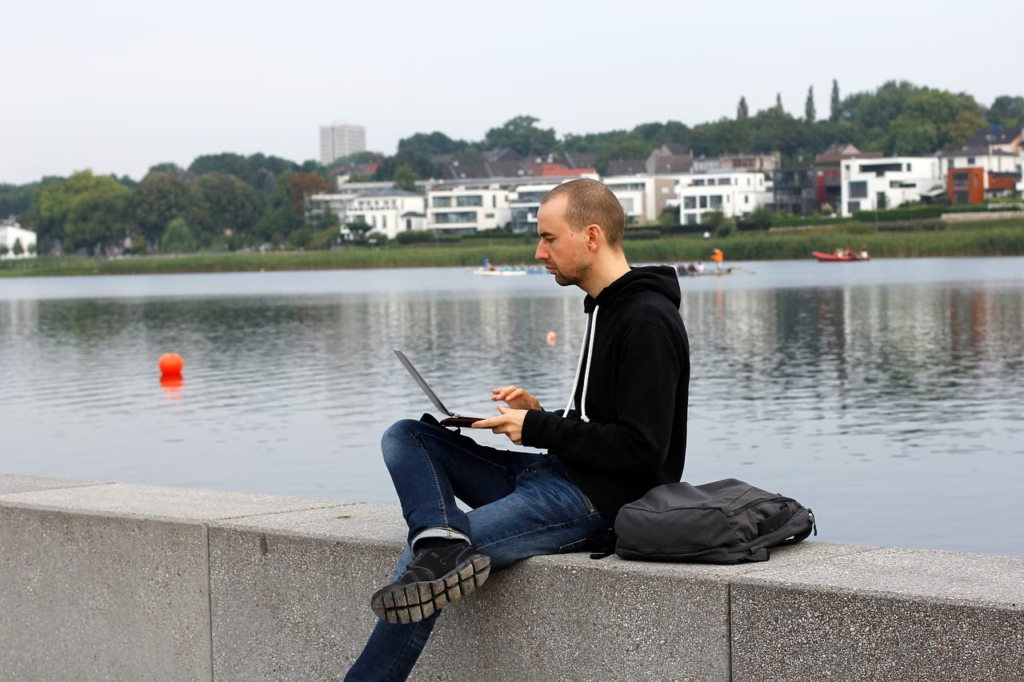The traditional 9-to-5 office setup feels increasingly like a relic of the past. Fueled by technological leaps and accelerated by the global pandemic, the remote work revolution isn’t just a trend – it’s reshaping how we think about careers, lifestyles, and even borders. For a growing number of professionals, the dream of combining work with travel is no longer just a fantasy. Enter the Digital Nomad Visa (DNV): a game-changing opportunity allowing remote workers to legally live and work in foreign countries for extended periods.
But what exactly are these visas, who are they for, and how can you navigate this exciting new landscape? Let’s dive in.
What Exactly is a Digital Nomad Visa?
Think of it as a specific residence permit tailored for the modern remote workforce. Unlike a standard tourist visa (which typically prohibits any form of work), a Digital Nomad Visa grants individuals employed by foreign companies, or self-employed freelancers serving international clients, the legal right to reside in a host country while continuing their remote work.
Key characteristics often include:
- Duration: Typically longer than tourist visas, often ranging from six months to two years, sometimes with renewal options.
- Work Permission: Explicitly allows remote work for entities outside the host country. You generally cannot take up local employment.
- Target Audience: Aimed at location-independent professionals with a demonstrable stable income from foreign sources.
Why the Surge? The Driving Forces Behind DNVs
The rise of DNVs isn’t accidental. Several converging factors are driving their proliferation:
- The Remote Work Boom: Companies globally have embraced remote or hybrid models, giving employees unprecedented location flexibility.
- Worker Demand: Professionals increasingly seek better work-life balance, cultural immersion, and adventure without sacrificing their careers.
- Economic Opportunity for Countries: Nations see DNVs as a way to attract high-earning individuals who spend money locally (accommodation, food, leisure) without competing for local jobs. It’s a way to boost tourism revenue streams and inject foreign capital into the economy.
- Talent Attraction: Some countries view DNVs as a soft landing, potentially attracting skilled individuals who might later transition to other visa categories or contribute to the local innovation ecosystem.

The Allure: Benefits for the Modern Remote Worker
Why is the digital nomad lifestyle, facilitated by these visas, so appealing?
- Unparalleled Freedom & Flexibility: Choose your backdrop – work from a Lisbon cafe, a Costa Rican beach town, or a bustling Asian metropolis.
- Cultural Immersion: Go beyond a fleeting tourist visit. Live like a local, learn new languages, and gain deeper cultural understanding.
- Potential Cost Savings: Depending on the destination compared to your home city, you might enjoy a significantly lower cost of living.
- Global Networking: Connect with other nomads and locals, expanding your personal and professional horizons.
- Inspiration Boost: A change of scenery can spark creativity and provide fresh perspectives.
Countries Rolling Out the Welcome Mat (Examples)
The list of countries offering DNVs or similar long-stay remote work permits is constantly growing. Some popular examples (as of early 2025 – always check official government sources for the latest) include:
- Portugal: Known for its relatively accessible DNV (both for independent and salaried workers) and high quality of life.
- Spain: Launched its DNV with attractive tax benefits for qualifying individuals.
- Croatia: One of the European pioneers, offering a temporary stay permit for digital nomads.
- Costa Rica: Famous for its Pura Vida lifestyle and welcoming Rentista/Digital Nomad visa.
- Indonesia (Bali): Offers options like the B211a Socio-Cultural visa, often used by nomads, with longer-term plans frequently discussed.
- Greece, Estonia, Colombia, UAE (Dubai), Malaysia… and many more are joining the ranks.
Important: Eligibility criteria (minimum income, health insurance, type of work), application processes, fees, and duration vary significantly between countries.

Navigating the Nitty-Gritty: Legal & Practical Considerations (Crucial!)
While the dream is enticing, navigating the practicalities is essential for a smooth transition. This is where authoritativeness and trustworthiness are key:
- Tax Obligations: This is often the most complex aspect. Where do you pay taxes? Your home country? The host country? Both? Tax treaties between countries play a huge role. Many DNVs aim to avoid triggering local tax residency if you meet specific conditions and time limits, but this isn’t guaranteed. Crucially, consult with tax professionals specializing in international/expat taxation before you move.
- Health Insurance: Comprehensive international health insurance covering you in your host country is almost always a mandatory requirement for the visa application.
- Proof of Income: Expect to provide bank statements, employment contracts, or client invoices proving you meet the minimum income threshold (this varies widely by country).
- Proof of Remote Work: Documentation showing your employment or freelance business is based outside the host country.
- Residency Status: Understand what the DNV grants. It’s usually temporary residency focused on remote work, often not a direct path to permanent residency or citizenship (though some pathways might exist later).
- Application Process: Be prepared for bureaucracy. Gather documents meticulously, expect processing times, and potentially interviews. Using reputable visa services can help but adds cost.
- Local Laws: You are subject to the laws of your host country. Understand basic regulations, especially regarding visas and work permissions.
Disclaimer: Visa requirements change frequently. Always consult the official embassy or immigration websites of the specific country you are interested in for the most accurate and up-to-date information.
The Reality Check: Challenges of the Nomad Life
It’s not always sunset cocktails and perfect Wi-Fi:
- Isolation & Loneliness: Building a community in a new place takes time and effort.
- Time Zone Differences: Coordinating with colleagues or clients across the globe can be challenging.
- Instability: Finding reliable internet, suitable accommodation, and navigating unfamiliar systems can be stressful.
- Visa Bureaucracy: Applications can be complex, slow, and sometimes costly.
- Work-Life Blur: The temptation to explore can sometimes overshadow work commitments, requiring discipline.
The Future is Remote, The Future is Global
The Digital Nomad Visa is more than just a travel permit; it’s a symbol of the evolving nature of work in our globalized world. As more countries recognize the benefits and more workers seek flexibility, we can expect:
- More countries launching DNVs.
- Potentially more streamlined processes (though standardization is unlikely soon).
- Increased infrastructure (co-working spaces, nomad-friendly housing) in popular destinations.

Ready to Take the Leap?
The rise of the Digital Nomad Visa presents an incredible opportunity for eligible remote workers to experience the world in a profound way. It offers freedom, cultural enrichment, and a chance to redesign your life and career.
However, it demands careful planning, thorough research, and a realistic understanding of the legal and practical obligations involved, especially concerning taxes and insurance.
Your Action Plan:
- Research: Identify countries that appeal to you and check their official DNV requirements.
- Assess Finances: Do you meet the income threshold? Can you afford setup costs and living expenses?
- Consult Experts: Talk to international tax advisors and potentially immigration lawyers.
- Prepare Documentation: Start gathering necessary proofs (income, work, insurance).
- Plan Logistics: Think about accommodation, healthcare access, and staying connected.
The world is opening up for remote workers like never before. Are you ready to explore it?



